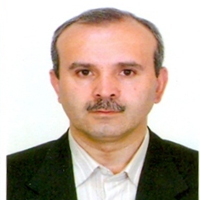A Comparative Study on Four Strains of Petroleum Hydrocarbon-degrading Bacteria for the Bioremediation of Petroleum-contaminated Soils
Pollution caused by oil extraction processing stimulates the growth of petroleum hydrocarbon-degrading bacteria. Bioremediation, a process that utilizes the capability of microorganisms to degrade petroleum hydrocarbon compounds, is emerging as a promising technology for the treatment of soil and groundwater contamination. This paper aimed to separate petroleum-degrading bacteria and to investigate their applicability in the bioremediation of petroleum-contaminated soils.
Sampling was done from the soil of a refinery area. A mineral culture-medium environment containing n-hexane was used for isolation. Isolated bacteria were identified by biochemical methods and 16S rRNA sequencing. Phytotoxicity test was performed by measuring the percentage of Lepidium sativumm seed germination. Contaminated soil bioremediation was performed using the selected strains in the laboratory and the environment over three months.
A total of 19 bacteria isolates capable of growing on mineral medium containing n-hexane were isolated. Among the isolated strains, four strains had the highest ability to biodegrade the petroleum compounds of anthracene, naphthalene, and phenanthrene. By the molecular identification method, the selected strains were identified as Stenotrophomonas maltophilia (SB10), Bacillus subtilis subsp.spizizenii (SB7), Streptomyces ambofaciens (SB14), andCupriavidus respiraculi (SB16). The treatment of petroleum-contaminated soils using S. maltophilia (SB10) increased the population of petroleum-degrading bacteria from 5.2×103 to 1.4×104 at the end of the third month. The rate of biodegradation of the total petroleum hydrocarbons reached 80% and the germination power of Lepidium sativumm reached 68% at the end of the third month.
The addition of the selected bacterial strains to soil contaminated with petroleum compounds increased the population of degrading bacteria. The use of degrading bacteria along with sawdust improved the purification of petroleum-contaminated soils.
- حق عضویت دریافتی صرف حمایت از نشریات عضو و نگهداری، تکمیل و توسعه مگیران میشود.
- پرداخت حق اشتراک و دانلود مقالات اجازه بازنشر آن در سایر رسانههای چاپی و دیجیتال را به کاربر نمیدهد.


